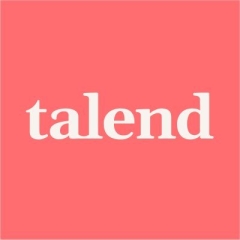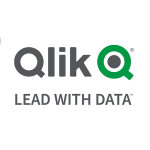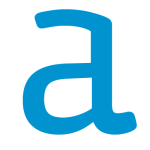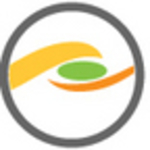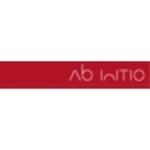What is our primary use case?
Currently, I am using this solution to develop an integration between two particular systems. It's selecting a TSV file from slate and transferring to banner after you work the data.
How has it helped my organization?
Since I am using it for an ongoing project, I haven't been able to deliver on that project.
It is going to help us in changing the way we look at integrations and not have deployed from a strictly coding standpoint. Instead, it's going to be from a perspective of design and orchestration, which is the direction we are going in.
What is most valuable?
I have been using very basic features, but one of the features that I liked the most is how it handles different contexts. I like the way that you can use the context variables, and how you can work those context variables to give you values and settings for every development environment, such as PROD, TEST, and DEV.
The objects are friendly to use, and another feature that I like is the general generic schemas, even though it took a certain amount of learning to get used to it, it was beneficial.
With what I have seen in the cloud version the interface is great, and what I have used of the on-premises version is great.
It's user friendly.
What needs improvement?
While I understand that I am using the open-source version, but the facility of having version control is to the point where you can share it with other developers in the team. I think that's the way the product was intentionally made. That way you don't have organizations using the open-source version and instead of using the paid version.
I would like to sync a project and do an upload from that current version, and then from GitLab, be able to download the latest one. It will make it easier to share code with teammates. This is most likely something that Talend Open Studio doesn't have intentionally so that organizations have to invest in the cloud.
If Talend were to be able to offer an annual license in which the number of integrations is the deciding factor, instead of the number of concurrent users developing, then that would make them a little bit more competitive when you're comparing them to, for example, were Workato or SnapLogic.
For how long have I used the solution?
I'm still in the learning phase and the exploration phase. I have been working with this solution for approximately a month and a half.
What do I think about the stability of the solution?
I haven't found any bugs or glitches so far. I am still exploring the tool.
I've heard from organizations that have the cloud version, that there are certain objects that I will not have in the on-premises version. I don't know which objects they are.
I still haven't seen Talent Open Studio lacking in anything, but I guess that they've gone through something specific.
I am sure that there is a generic object that you can use to cover a certain demand.
What do I think about the scalability of the solution?
In terms of scalability, we have put basic projects in Cron Servers to run out a Cron Job, which didn't require a lot of work. I had to do the research on how to export the job, then it worked. We have only done it with basic jobs where you are moving files over, creating directories, and validating if the directories exist.
Soon we will be deploying one that is going to involve connecting to an SFTP to select files, doing a DIFF of the file, and comparing it to a previous version. With what is left, we're performing inserts and Oracle tables.
I am the only one that is fully using this solution. I do have another person who helps me when transferring files to the Cron Server.
How are customer service and technical support?
I really haven't reached out to technical support. I've been just doing it on my own, going through forums, blogs, reading multiple books, and finding a couple of videos on YouTube. That has been enough.
I would have to encounter something that is challenging in the development process, and since I am going to be using some APIs, those calls would be done through SQL. I don't think that I will be asking for help anytime soon, but it might be different once we are using the cloud version.
Which solution did I use previously and why did I switch?
We are currently in the process of selecting an I-PASS solution and right now, the Talend Data Management Platform is one of the finalists.
We are ironing out the differences and seeing how much we can do with the open-source version before moving onto the cloud version.
How was the initial setup?
In the initial setup, I was having some struggles with making sure that Java requirements were properly set up. After that, it was working fine.
I have installed it on both a Mac and a PC, and I haven't had any complaints.
I'm still working out the dynamic of using a GIT repository, such as GitLab to be able to back up all of the projects that I'm working on.
What's my experience with pricing, setup cost, and licensing?
The pricing is a little higher than what I had expected, but it's comparable with I-PASS competitors.
It's on the higher side because it's a developer-user licensed solution. It makes you look at the investment differently than an I-PASS that is offered by the number of integrations that you have to work on. You have to balance it out on one end. You have an I-PASS that tells you that you can have an unlimited amount of developers, but you can only develop a certain amount of integrations per yer. That's what you are paying for.
With Talend, it's the opposite. You can have an unlimited amount of integrations but you only a license for two developers, for example.
What other advice do I have?
For anyone looking to use this solution, I would suggest using the open-source version first.
I have been told that there are missing features, but I haven't found what those components are. I can understand how an organization that is already living with the Talend cloud can identify that easier because they were already facing a challenge without finding that component.
The reason why that organization told me that was because they have three developers working on a cloud version and one developer working on the on-premises version.
That is how they picked up on it. According to what I had heard from that source, there are differences. There are some components that are only going to be available in the Talend cloud version.
At this time, it is difficult for me to evaluate this solution, as I have only seen how their products work and I am not fully working with Talend. It's subjective.
The only way that I could be objective would be if I had maybe one year of experience using a different I-PASS and then one year of experiencing using this one.
We are still in the process of evaluating them, but I love the way things look in Talend, and I'm all for Talend. I know that Workato is really close to it as well.
The relationship with the vendor is currently coding, presentations, demos, and conversations of how this I-PASS can be a part of our organization.
I would rate this solution an eight out of ten.
Which deployment model are you using for this solution?
On-premises
Disclosure: My company does not have a business relationship with this vendor other than being a customer.

